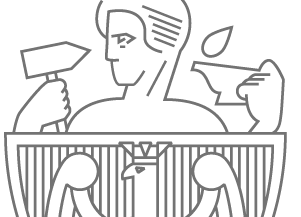Strona główna » DAAS » People »
Mateusz Sochacki
|
|
Scientific degree: M.Sc.
Institute: Aeronautics and Applied Mechanics
Phone: +48 22 234 5981 |
|||
Themes of intermediate projects
- orbital mechanics
- modelling and simulation of spacecraft flight
- orbital manoeuvres
- space mission analysis and design
- spacecraft navigation in near-Earth, interplanetary and interstellar space
- spacecraft subsystems modelling
- modelling of the loads acting on a spacecraft
- optimisation
- paragliding
Examples of intermediate projects
- simulation of spacecraft launch
- simulation of spacecraft landing/deorbitation
- simulation of atmospheric re-entry/aerocapture with dynamic pressure/temperature limit constraints
- simulation of satellite constellations, visibility determination of GNSS satellites (GPS, Galileo, GLONASS, Beidou)
- spacecraft launch/landing trajectory optimisation, Goddard problem
- spacecraft aerodynamic coefficients determination (free molecular flow)
- spacecraft reflectivity characteristics coefficients determination (solar radiation pressure)
- analysis of distribution of objects in near-Earth space based on TLE data
- spacecraft orbit determination based on ground-based observations
- International Space Station (ISS) orbit determination based on the photo of its flyover
- modelling of nonuniform objects’ gravity field (spherical harmonics model, mascons model, polyhedral model)
- Earth’s shadow modelling
- modelling of a star tracker device - camera attitude determination based on an image of the stars
- multistage rocket optimisation
- development of a numerical model of a craters covered surface for the simulation of visual navigation during landing
- interplanetary trajectory optimisation, gravity assists
- comparison of interplanetary spaceflight simulation with the patched-conics method
- comparison of low and high thrust manoeuvres (orbit radius change, plane change)
- simulation of an interplanetary mission propelled by a solar sail
- simulation of motion of many (~1000) objects under the influence of mutual gravitational interaction
- simulation of debris dispersion during spacecraft collision
- development of a tool for rapid/preliminary optimisation of generic functions based on a finite list of query points
- development of an algorithm for generating a random attitude with uniform distribution
- optimisation of flight path through an area with a specified wind vector field
- paraglider/glider winch/tow launch simulation
- development of an application for data recording on the Android platform with remote support via SMS
- development of an application for displaying the location of geographical points using augmented reality techniques on the Android platform


